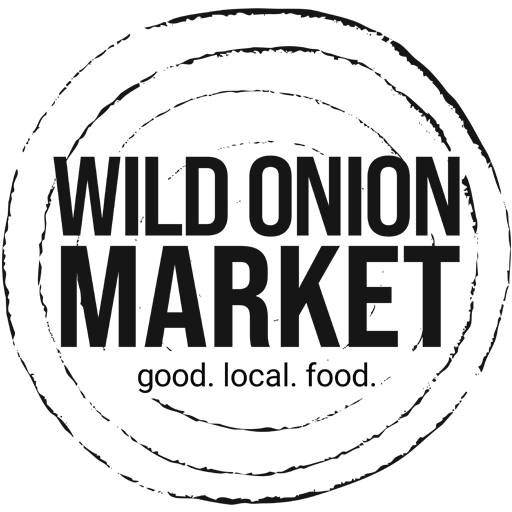FAQs
Wild Onion Market. Your Grocery Store.
We are a wonderfully and widely diverse group of people united by a longing for a community-owned grocery store where we can make consumer choices that reflect our values. Take a look at our answers to your frequently asked questions. This is YOUR store. Become an Owner!
What is a grocery cooperative?
A co-op is an independent, democratic, organization that is owned, operated, and financed by its Owners. Wild Onion Market is a values-driven business, which makes it different from other grocery stores. We are community-owned, which allows us to send our profits directly back to our Owners, our store, and to the community we serve. Because of this, we can remain committed to a triple bottom line; the economic, social and environmental responsibilities that shape our co-op from the ground up. Wild Onion Market will be owned and operated by those who purchase Owner shares, but anyone will be able to shop at the store.
Do I have to be a member to shop here?
How is a co-op grocery store different from regular grocery stores?
- Social responsibility
- Support for local/ organic/ independent producers
- Healthy foods
- Clear labeling and reliable information about the products sold
- Concern for the environment
- Care or the community- making it a better place to live
- Fair wages for employees
How does co-op ownership work?
What are the benefits of becoming a co-op owner?
How can I become an Owner?
All households, businesses, and non-for-profit organizations contribute $250 for an equity share. This amount is payable in one lump sum or in monthly payments of $50 or $25 or $10. A single ownership and benefits will apply to everyone in the household. Each household will be allowed one vote. Fill out an Owner application.
If anyone can shop at the store, why should I pay to become an Owner?
The co-op needs Owners to purchase shares to support our mission of bringing quality, local goods and produce to our community! You become an Owner of the store with a voice on what types of products are sold and how it operates. Profits from sales are funneled back into the store or used in other ways as determined by the Owners.
As an Owner, am I financially or legally liable?
Wild Onion Market operates like any business when it comes to loan repayment and finances. Owners will not be responsible for any possible loan repayments or financial burdens. As a cooperative corporation, all liabilities remain with the store.
How does a grocery co-op benefit the community?
We have lots of grocery stores, and some carry local. Why do we need a co-op?
We need a grocery store that builds a strong partnership with local farmers and is committed to buying local FIRST. The Wild Onion Market will contact local farmers wanting to work with us to help them with pre-season planning when the co-op opens. A working relationship with our farmers will enable us to help them to decide what to grow-while ensuring that they have a group of engaged consumers with a commitment to buying local first and ensuring our farmers can make a living raising food for our community.
A committed partnership with our local farmers will also encourage current farmers to increase production and do more year-round farming, and it will attract more young people into the business of raising food for our community. When local products are not available, we can still support small, sustainable producers by following fair trade practices- and building relationships with small family farms and small, artisan producers in other parts of the country.
If our Owners choose, we can even establish programs to help support our local farmers in other ways. For example, we could establish grant programs to help beginning farmers get started or to help buy a hoop house for a farmer who wants to expand or to organize a volunteer work squad to help with a big harvest.
Does Wild Onion Market Accept LINK/SNAP EBT?
How will the co-op affect other health food businesses, the farmer’s market, and CSA’s?
We are aware the co-op may pose a challenge for some businesses, at least in the short term. However, we know of at least one type of local business, local farms. that need a much larger market for their products. If we want to have any hope of increasing sales of local products from our current 5% to 15% or more, we need to provide consumers with easier, more reliable access to those products.
Current businesses may have a commitment to expanding markets for farmers, but they lack the capacity. Others have the capacity but lack the commitment. By pooling resources and building on shared values, the co-op will provide both the capacity AND the commitment needed to expand business for local farms AND improve access to healthy food for local families.
I have special dietary needs. Will the co-op carry the items I need?
I buy produce locally at the farmer’s markets. Why do we need a co-op to sell these same items?
What are the seven principles of cooperatives?
- Voluntary and Open Membership
- Democratic Member Control
- Member Economic Participation
- Autonomy and Independence
- Education, Training and Information
- Cooperation among Cooperatives
- Concern for Community
I have a question that isn’t listed here.
You can contact us with any questions at hello@wildonionmarket.com
